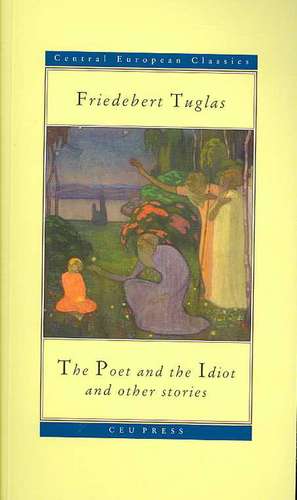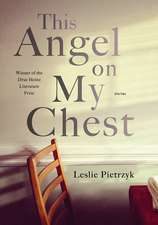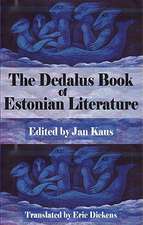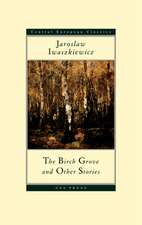The Poet and the Idiot: And Other Stories: CEU Press Classics
Autor Friedebert Tuglas Traducere de Eric Dickensen Limba Engleză Paperback – 4 mai 2007
Preț: 245.42 lei
Nou
Puncte Express: 368
Preț estimativ în valută:
46.96€ • 49.16$ • 38.86£
46.96€ • 49.16$ • 38.86£
Carte tipărită la comandă
Livrare economică 05-19 aprilie
Preluare comenzi: 021 569.72.76
Specificații
ISBN-13: 9789637326882
ISBN-10: 963732688X
Pagini: 339
Dimensiuni: 127 x 211 x 25 mm
Greutate: 0.5 kg
Editura: Central European University Press
Seria CEU Press Classics
ISBN-10: 963732688X
Pagini: 339
Dimensiuni: 127 x 211 x 25 mm
Greutate: 0.5 kg
Editura: Central European University Press
Seria CEU Press Classics
Notă biografică
Friedebert Tuglas (1886-1971) was Estonian writer, exerted a steady and profound influence on the whole evolution of Estonian literature during the 20th century. He was a leading figure of the "Noor-Eesti" (Young Estonia) movement, and is considered to be the master of Estonian short story.
Descriere
Features nine stories, and an essay, which were written during the World War One, or in the first years of Estonian independence in the early 1920s. They reflect the troubled spirit of the times, but exhibit the influence of a wide selection of writers, ranging from O Wilde and M Gorky, to F Nietzsche and Edgar Allan Poe.
























